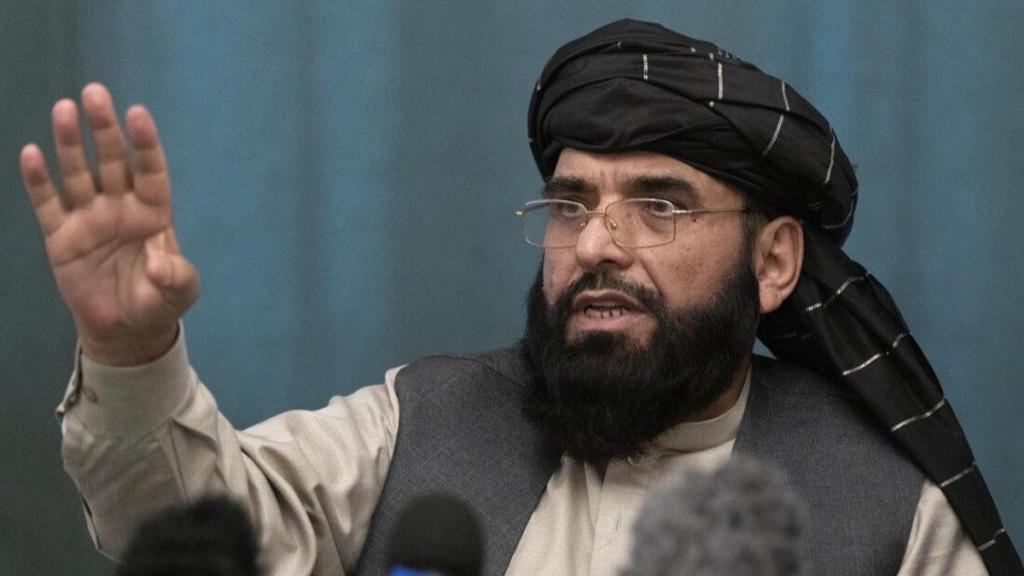As the Taliban seeks to solidify its rule over Afghanistan and gain international legitimacy, Suhail Shaheen has emerged as one of its most important spokespersons. Appointed the head of the Taliban’s political office in Doha, he has become the face of the group’s diplomatic outreach, helping shape its image in the eyes of the world.
But who exactly is Suhail Shaheen, and why is his role so crucial to the Taliban’s strategy? Here’s everything you need to know.
Why This Matters
After the Taliban took control of Afghanistan in 2021, many feared the return of the harsh, authoritarian regime of the 1990s. In response, the Taliban has tried to present a more moderate, diplomatic front to the world, hoping to secure recognition from global powers and alleviate the country’s economic crisis. Shaheen, with his media-savvy persona and diplomatic experience, plays a central role in this image makeover. But despite his calm, composed public persona, the international community remains deeply sceptical of the Taliban’s promises. Understanding Shaheen’s background and role helps us grasp the complex dynamics behind the Taliban’s efforts to reenter the global fold.
Suhail Shaheen’s Early Life and Career
Born in Paktia Province, Afghanistan, Shaheen’s path to becoming the Taliban’s key spokesman was shaped by his education and diplomatic career. Fluent in English, he was not just a political figure but also a writer. During the Taliban’s first rule in the late 1990s, he edited Kabul Times, the government’s English-language newspaper. This experience gave him the skills to communicate directly with the international media, a role that would prove invaluable when the Taliban returned to power in 2021.
His diplomatic career continued as he served as deputy ambassador at the Afghan Embassy in Pakistan, where he further honed his political and diplomatic skills. This background laid the foundation for his later role as the spokesperson for the Taliban’s political office in Qatar, a position that would catapult him onto the international stage.
Why Suhail Shaheen Is the Taliban’s Key Spokesman
As head of the Taliban’s political office in Doha, he plays an essential role in the group’s efforts to engage with the international community. His calm and measured communication style contrasts with the more aggressive rhetoric historically associated with the Taliban. This has made him a more friendly figure for global media and governments, helping the group present a softer image of their leadership.
When the Taliban took over Afghanistan in August 2021, he became one of the first to address global concerns. He assured the world that the Taliban would not seek revenge against political rivals, would allow girls to attend school, and would not enforce the strict, oppressive laws of the past. His public assurances were a deliberate attempt to signal change and openness, even as the Taliban continued to enforce many of the same restrictive policies domestically.
Shaheen’s Media Savvy: A Calm Voice in a Turbulent Time
His media appearances have stood out because of his calm, composed demeanour. Unlike the more hardline leaders of the Taliban, he is often described as soft-spoken and respectful, even when delivering the group’s controversial messages. This makes him an ideal figure for the Taliban’s efforts to rebrand itself as a more moderate force.
His interviews have often included reassurance on key issues like women’s rights and political inclusion, though many critics remain unconvinced. His attempts to project a “softer” image, however, have raised eyebrows. As one observer noted, he was “everything you don’t expect a Taliban representative to be—calm, courteous, and willing to engage.”
The Taliban’s Outreach to India: Shaheen’s Views on Kashmir
One of Shaheen’s most controversial remarks came when he addressed the issue of Kashmir. Speaking calmly and carefully, he stated that the Taliban had the “right” to speak for Muslims in Kashmir, India. This was the first time the Taliban had made an official comment on the region, and it immediately raised concerns in New Delhi. Although Shaheen emphasized that India should remain impartial in Afghanistan’s internal affairs, his statements sparked significant diplomatic tensions.
While his comments were part of a broader effort to position the Taliban as a regional player, they also underscored the complexities of Afghanistan’s foreign policy moving forward. The Taliban’s stance on Kashmir, though not fully clarified, has already generated significant global attention.
Seeking Global Recognition: Shaheen at the Forefront
For Shaheen, the ultimate goal is clear: securing international recognition for the Taliban-led government in Afghanistan. This recognition would mean not just diplomatic legitimacy but also the lifting of sanctions and the ability to access foreign aid and loans, critical for a country devastated by war and economic collapse.
So far, several countries, including India, Qatar, China, Russia and Russia, have engaged with the Taliban. However, the United States and European powers remain hesitant, with concerns about the group’s human rights record, particularly regarding women’s freedoms and its treatment of minorities. He is at the center of these diplomatic efforts, trying to convince the world that the Taliban can govern Afghanistan responsibly and in line with international norms.
The Road Ahead
Suhail Shaheen’s role is a crucial one—not just as a spokesman but as the face of a Taliban government trying to shift its image on the world stage. How successful he is in achieving the Taliban’s goals for recognition will define not only his own legacy but also the future of Afghanistan in the international community.

